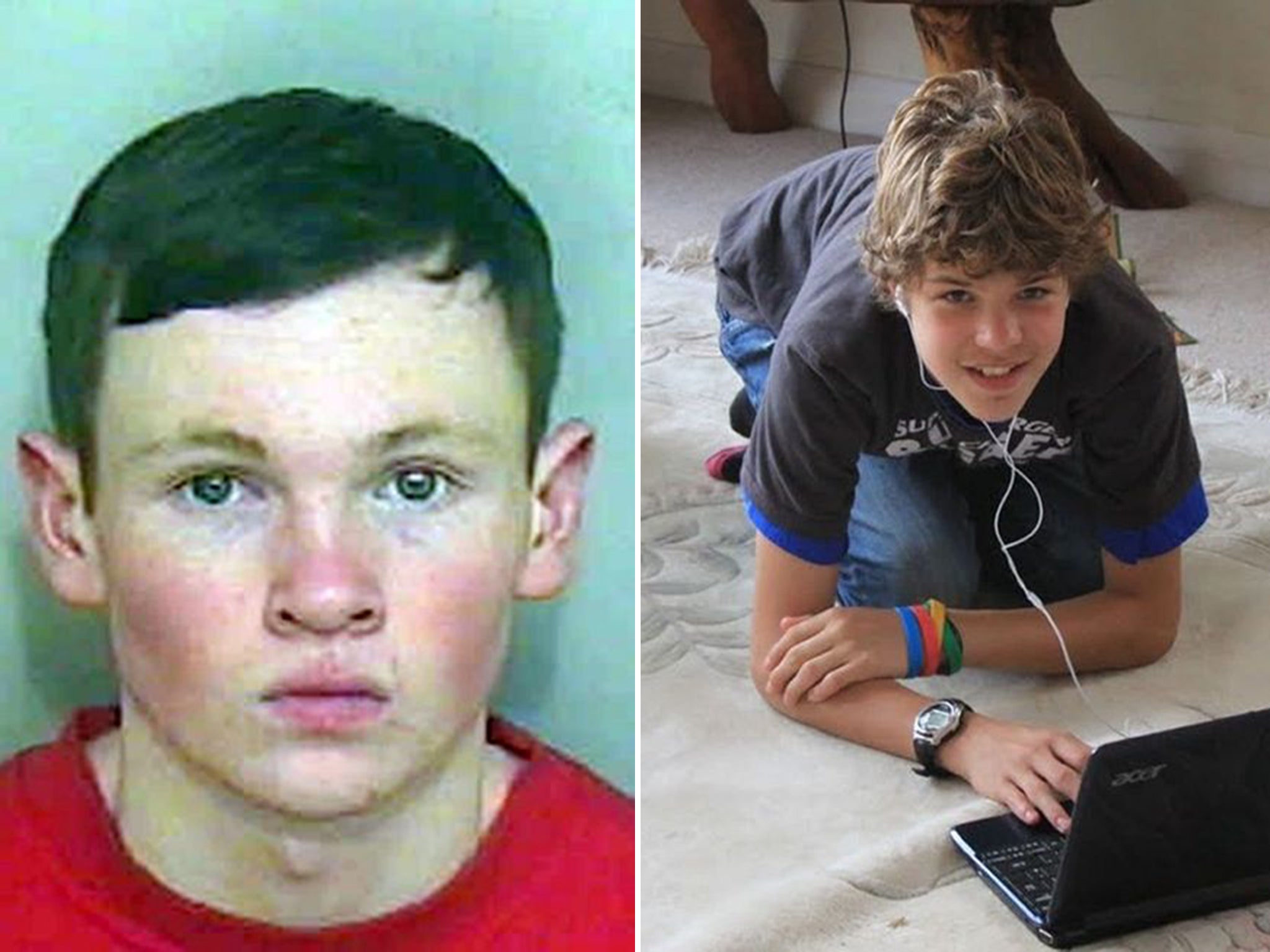Breck Bednar was murdered after being groomed on the internet. When are we going to start policing it properly?
Civil liberties must take a back seat in the wake of this appalling case


You have to steel yourself to read the victim impact statements of the parents of Breck Bednar, the 14-year-old boy murdered by an internet predator four years his senior, Lewis Daynes.
To do so is to merely glimpse their unimaginable grief, because the rest is truly unimaginable. Breck’s mother, Lorin LaFave, on learning the news that her son had been killed, screamed so loudly that she burst her own eardrums.
His father Barry told the court how he has lost all his “joy and hope” and is now a “shell of a man, wracked by grief”. Breck’s parents said they would have done anything to protect him.
In fact, they did go to some lengths to try to shield the schoolboy from danger before Daynes lured him to his flat and slashed his throat. Ms LaFave, suspecting that Breck was being groomed by someone much older than Daynes was, confiscated his computer.
She discovered Daynes’s identity and reported him to Surrey Police two months before the murder, giving detailed information, but even this was not enough for her to receive a call back. The information was not followed up until the killing. Another force, Essex Police, had been told in 2011, when Daynes was 15, that he had allegedly attacked a boy the same age.
Despite the efforts of his mother, Breck and Daynes carried on communicating. Parents can be vigilant about what their children get up to online in their own bedrooms, but when faced with determined predators like Daynes, or paedophiles posing as teenagers, they are up against devious, manipulative criminal minds who are several steps ahead on the technology. There is only so much a parent can do. So this is where the police come in – or should.
Yet the Child Exploitation and Online Protection centre (CEOP), an arm of the National Crime Agency, is struggling to cope with the reportedly tens of thousands of people who are engaged in online criminality, including viewing child pornography. I spoke to a senior technology official who described the challenge as an “ocean” of information that had to be dealt with at any one time, constantly changing and swelling, and only the resources of a tiny fishing boat to master it. At a time when CEOP needs more money, its funding has been reduced by 10 per cent as part of overall cuts to the police budget.
In talks with Barack Obama in Washington this week, David Cameron will announce extra resources for tackling cyber-attacks, like those experienced by US Army central command on Twitter, including young technology savvy volunteers who can work with GCHQ to counter the wave of hacking. It is clear that volunteers should also be recruited to CEOP to navigate the vast ocean of the internet.
I would go further in wanting the police and authorities to have as many tools needed to deal with online criminality – not only by predatory groomers like Daynes and child pornographers, but terrorists and cyber-criminals. As much as it pains my pre-motherhood self, who was an enthusiastic supporter of civil liberties, now I am a parent I am afraid I agree with the Prime Minister’s renewed attempt at allowing the security services to snoop on internet data. Civil liberties should be protected, but not at the cost of our freedom from terror and crime.
But there is also a major shift needed in our attitude – the government, police, parents and teenagers - to the internet. It may be more difficult for digitally unaware parents and even the authorities to navigate the depths of the “dark net”, or to track down criminals shielded by anonymity, but the sort of grooming carried out by Daynes was not “virtual”, it was real – and via an online sphere that Breck found easily, through mainstream video games, not on the “dark net”.
Ms LaFave knew the threat was real, which was why she tried to contact the police. We will not know the details of this specific case until an investigation by the IPCC has concluded, but there seems to be a general perception that the police don’t take internet crime as seriously as “real” crime. Perhaps it comes from a lack of understanding of how the internet works – which is why CEOP needs more young experts to join their ranks. But we have to stop regarding the internet as another country. If Daynes had been grooming Breck in a different way – through a youth club, for example – would this matter have been taken more seriously?
And Breck’s parents want to help too. It would be understandable if the family wanted nothing more to do with computing and the internet, but they are instead using this boy’s memory to improve it. His parents have set up the Breck Bednar Memorial Foundation, breckbednar.com, to raise money for computer education for young people, including the responsible use of technology. Their website says that Breck “had a great passion for the possibilities offered by innovations in computing – in his memory we would like to encourage other young people with similar passions”. They have also launched a wristband to remind teenagers of the dangers that can lurk online, with the slogan “Play Virtual/Live Real” – a motto we could all do with following.
Join our commenting forum
Join thought-provoking conversations, follow other Independent readers and see their replies
Comments
Bookmark popover
Removed from bookmarks